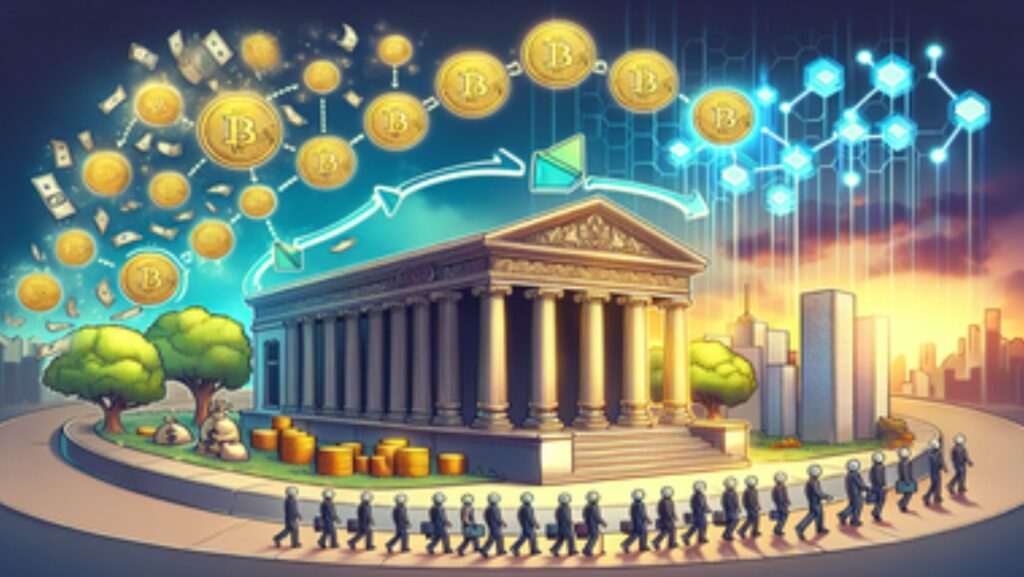Decentralized finance, or DeFi, is revolutionizing the way we think about money and financial systems. It’s not just a buzzword; it’s a movement that’s reshaping the very foundation of traditional finance. With DeFi, we’re seeing a world where financial transactions are transparent, accessible, and free from the control of centralized institutions.
I find it fascinating how DeFi opens up opportunities for anyone with an internet connection to participate in a global economy. Whether it’s lending, borrowing, or trading, DeFi platforms offer a level of inclusivity and innovation that’s hard to ignore. As we dive deeper into the world of DeFi, we’ll explore how this emerging technology is crafting the future of finance and why it’s becoming an essential part of our financial landscape.
Understanding DeFi: Crafting The Future Of Finance
Decentralized finance (DeFi) transforms traditional financial systems. By eliminating intermediaries, DeFi enhances transparency and accessibility. Anyone with internet access can engage in global financial activities like lending, borrowing, and trading. This decentralized approach diminishes reliance on centralized institutions, promoting financial inclusion.
Lending and Borrowing
In DeFi, lending and borrowing occur through smart contracts, which automate and secure transactions. Lenders can earn interest directly from borrowers, and borrowers can access funds without traditional credit checks. immediate-riseapp.com/cz, which provide decentralized liquidity pools.
Trading
DeFi platforms facilitate peer-to-peer trading of digital assets. Decentralized exchanges (DEXs) like Uniswap or Sushiswap allow users to trade tokens directly from their wallets. This reduces fees and increases security by removing centralized intermediaries.
Yield Farming and Staking
Yield farming and staking offer additional earning opportunities in DeFi.

Yield farming involves providing liquidity to earn rewards, while staking secures blockchain networks and earns participants interest. Platforms like Yearn.finance exemplify yield farming, while Ethereum 2.0 illustrates staking.
Tokenization
DeFi enables tokenization of real-world assets. Tokenization allows fractional ownership and increased liquidity. Real estate, art, and commodities can be represented as digital tokens, facilitating easier trading and investment.
DeFi catalyzes financial innovation and inclusivity. By integrating decentralized systems, users gain more control and access to financial services, paving the way for a more open financial future.
Key Components Of DeFi
DeFi’s revolutionary impact hinges on several key components. These components collectively advance transparency, security, and accessibility in the financial ecosystem.
Smart Contracts
Smart contracts are self-executing contracts with terms directly written into code. They perform transactions automatically once conditions are met, reducing the need for intermediaries.

By eliminating traditional financial middlemen, smart contracts lower costs and increase transaction speeds. Ethereum is the most notable platform supporting smart contracts, enabling functionalities in lending protocols, decentralized exchanges, and more.
Decentralized Applications (DApps)
Decentralized applications, or DApps, run on blockchain technology rather than centralized servers. They offer peer-to-peer services across finance, gaming, and social media sectors. Examples include Uniswap for trading digital assets and Aave for decentralized lending and borrowing. These applications enhance user control and foster a transparent, trustworthy network.
Governance Tokens
Governance tokens empower users to influence DeFi protocols by voting on proposals and changes. They democratize decision-making, ensuring that protocol modifications reflect the community’s interest. Examples like MakerDAO’s MKR and Compound’s COMP illustrate this prin


More Stories
The Technology Behind Virtual Receptionist Services
Crypto And Cards: The Fusion Of Blockchain And Betting
Tool Overload: Why Less Software Sometimes Means More Progress